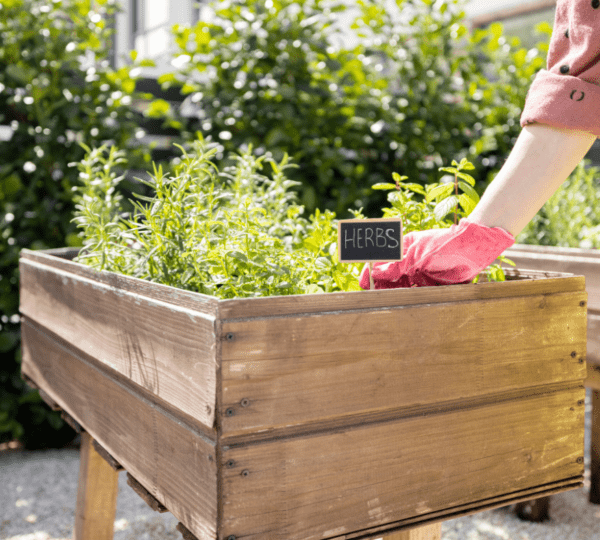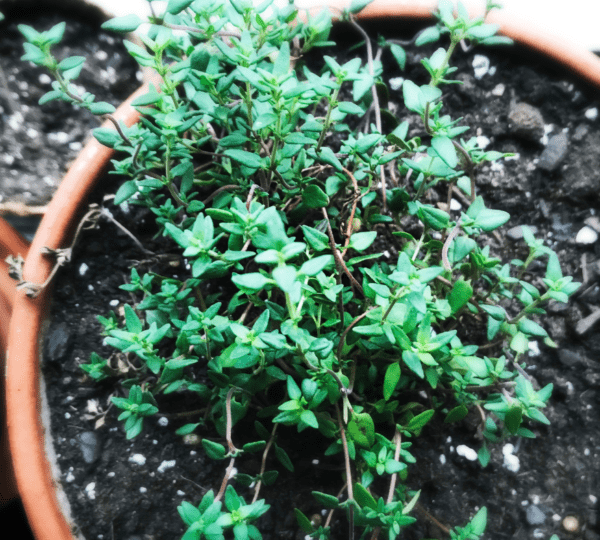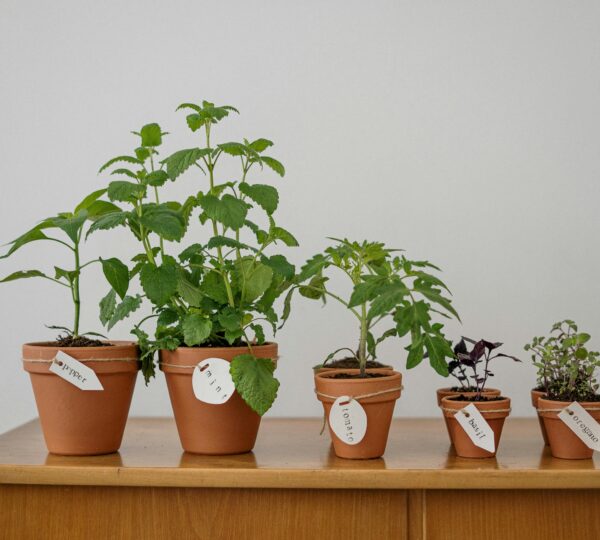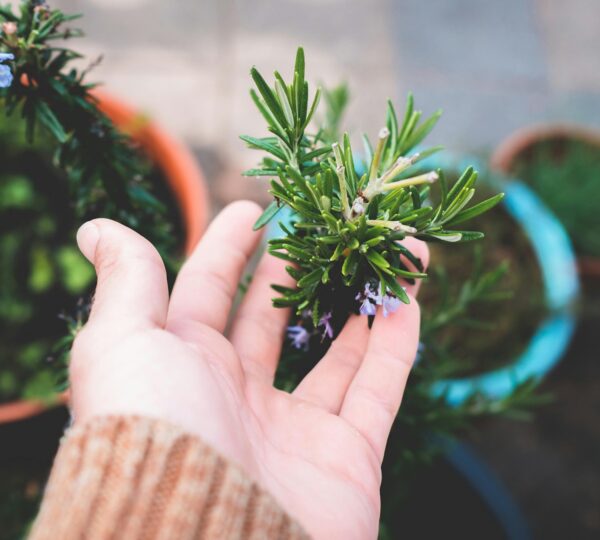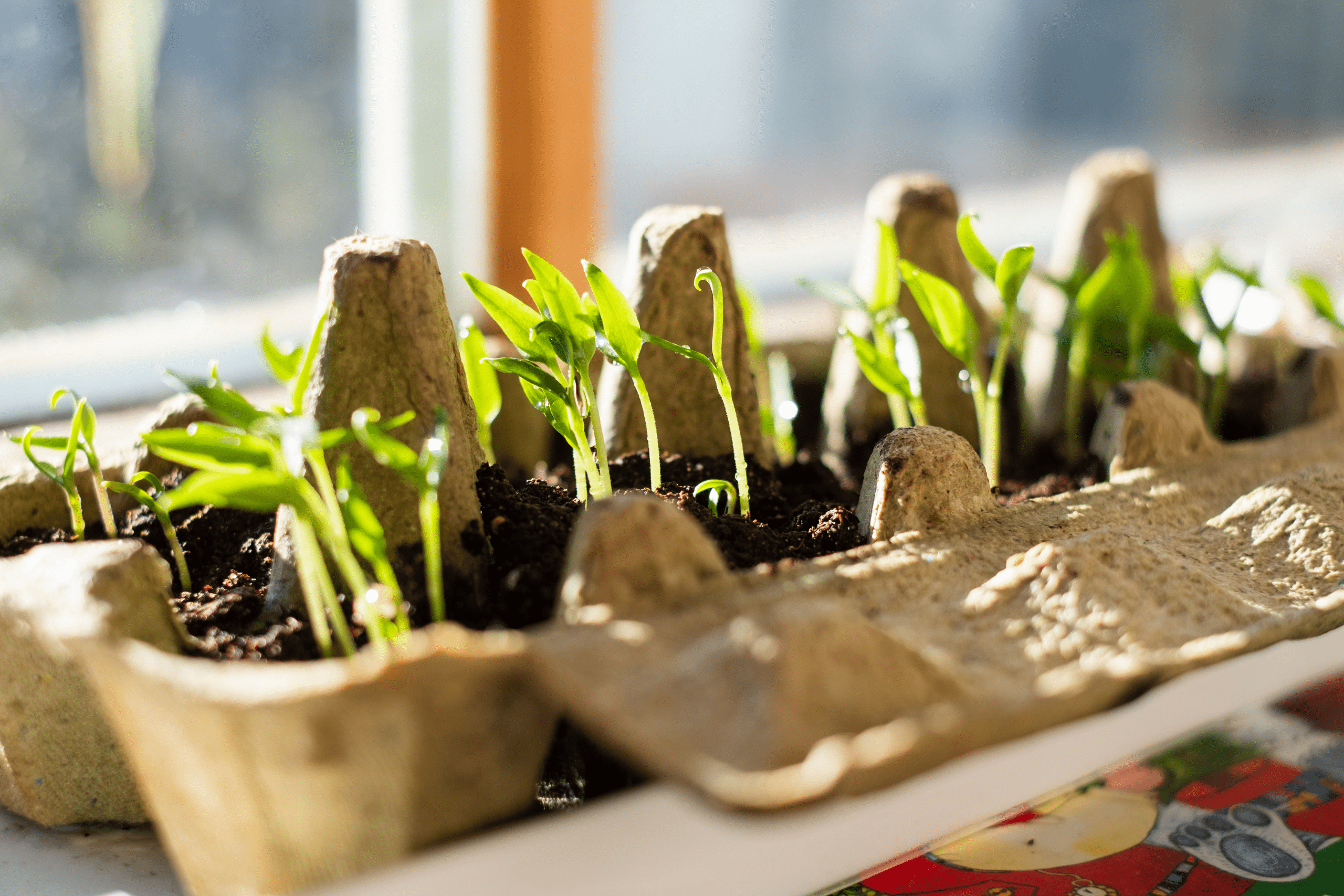
Growing Your Own Herbs at Home: A Beginner’s Guide
As a hobby, I love to cook and enjoy full whole made meals, but am often frustrated by the high prices and limited variety of fresh herbs at the grocery store. Recently, while browsing through a local gardening store, I stumbled upon a tiny herb garden kit. Intrigued, I went ahead to purchase it and followed the simple instructions. To my delight, within a few weeks, my windowsill was adorned with vibrant green herbs. Now, not only am I guaranteed a constant supply of fresh ingredients for my cooking, but I also discovered my newfound sense of satisfaction and connection to nature.
Growing your own herbs at home is not only rewarding but also enhances your culinary experiences, giving you fresh ingredients at your fingertips. So for this blog post, I’ll be sharing with you a guide on growing your herbs at home
Benefits of Growing Your Own Herbs
Growing your own herbs at home offers numerous benefits beyond just having fresh ingredients on hand:
- Cost-Effective: Herbs can be expensive to purchase at the grocery store, especially if you use them frequently. Growing your own can significantly reduce your food costs, allowing you to invest in other quality ingredients.
- Freshness and Flavor: Herbs harvested from your garden are incredibly fresh and flavorful. The difference between a store-bought herb and one you just picked is astounding, enhancing the taste of your dishes.
- Sustainability: Homegrown herbs reduce your carbon footprint by eliminating the need for transportation and packaging. You also avoid the chemical preservatives often found in store-bought herbs.
- Therapeutic Benefits: Gardening has been shown to promote mental well-being. Studies have indicated that spending time in nature can reduce stress and improve mood.
- Educational Experience: Gardening is a wonderful way to learn about plants, nature, and the environment. It can be a great educational activity for children and adults alike.
How to Grow your Herbs at Home
Choosing the Right Herbs
When starting your herb garden, it’s essential to select herbs that are suitable for your climate and match your culinary preferences. Consider the following popular choices:
- Basil: A versatile herb used in Italian and Mediterranean cuisine. It thrives in warm weather and is perfect for pesto, salads, and sauces.
- Rosemary: A fragrant herb that pairs well with meats, poultry, and vegetables. Its woody flavor makes it a great addition to roasts and stews.
- Thyme: A small, woody herb with a subtle flavor that compliments many dishes, including soups, stews, and roasted meats.
- Parsley: A classic herb used in a variety of cuisines for both flavor and garnish. It’s rich in vitamins and adds freshness to any dish.
- Mint: A refreshing herb often used in tea, cocktails, and desserts. Mint is easy to grow and can quickly become a favorite in your garden.
Creating Your Herb Garden
There are several ways to grow herbs at home, depending on your space and preferences. Here are some popular options:
- Container Gardening: This is an excellent option for those with limited space. You can use pots, planters, or even repurposed containers like old tea kettles or boots. Ensure your containers have drainage holes to prevent waterlogging.
- Windowsill Gardening: If you have a sunny windowsill, this is the perfect spot for your herbs. Most herbs thrive in direct sunlight, making it an ideal environment for growth.
- Outdoor Garden: If you have outdoor space, consider creating a dedicated herb garden in a sunny location. Raised beds or garden plots can be used to plant a variety of herbs.
- Vertical Gardens: For those with very limited space, vertical gardening is a creative solution. You can use wall planters or hanging pots to maximize your growing area.
Caring for Your Herbs
Proper care is essential for healthy and thriving herbs. Here are some tips:
- Sunlight: Most herbs require at least six hours of direct sunlight per day. If growing indoors, place them in a bright spot by the window.
- Watering: Water your herbs regularly, but avoid overwatering. Check the soil moisture before watering; it should be damp but not soggy.
- Fertilizing: Fertilize your herbs once a month with a balanced fertilizer or compost to ensure they have the nutrients they need to grow strong.
- Pruning: Prune your herbs regularly to promote growth and prevent them from becoming leggy. Harvesting leaves encourages new growth and keeps the plants healthy.
Harvesting and Using Your Herbs
The best time to harvest herbs is in the morning when they are fresh and full of flavor. Use a sharp pair of scissors to cut the desired amount. Here are some ideas for using your fresh herbs:
- Flavor Enhancers: Add fresh herbs to salads, soups, sauces, and marinades for an instant flavor boost.
- Herb-Infused Oils and Vinegars: Create your own herb-infused oils or vinegars for a delicious dressing or condiment.
- Preservation Techniques: If you have an abundance of herbs, consider preserving them by drying, freezing, or pickling. Drying herbs can extend their shelf life and allow you to enjoy their flavors year-round.
- Creative Dishes: Experiment with different herb combinations in your cooking. Try adding basil to tomato soup or mint to yogurt for a refreshing dip.
Meal Ideas You Can Add Your Herbs To
Herbs can elevate the flavor of almost any dish, making your meals not only more delicious but also more nutritious. Whether you’re whipping up a quick pasta, a hearty soup, or a simple salad, adding fresh or dried herbs like basil, thyme, cilantro, or parsley can bring depth and vibrancy to your food. Try tossing rosemary into roasted vegetables, sprinkling dill over grilled fish, or mixing oregano into marinara sauce. The possibilities are endless, and incorporating herbs is a simple way to enhance both the taste and health benefits of your meals.
Expert Opinions on Homegrown Herbs
Chef Jamie Oliver, a strong advocate for homegrown food, emphasizes, “Nothing beats the flavor of fresh herbs. They’re the secret ingredient that can transform your dishes from average to extraordinary.” His passion for cooking with fresh ingredients has inspired many home cooks to cultivate their own herb gardens.
Similarly, Monty Don, a renowned British gardening expert, frequently highlights the joy of growing herbs. He states, “Herbs are incredibly forgiving and easy to grow. They can thrive even in small spaces and bring immense joy and satisfaction to the gardener.”
The trend of growing herbs at home has been gaining momentum in recent years, driven by several factors:
- Urban Gardening: As cities become busier and living spaces smaller, urban gardening has surged in popularity. More people are looking for ways to connect with nature and produce their own food, even in limited spaces.
- Sustainable Living: The growing emphasis on sustainability has encouraged many to reduce their carbon footprint. Homegrown herbs eliminate the need for transportation and packaging, aligning with eco-friendly practices.
- Mindful Eating: The mindful eating movement encourages individuals to pay attention to the quality and source of their food. Growing herbs at home allows for a more authentic and flavorful culinary experience, supporting health and wellness.
- Connection to Nature: Many people today are seeking ways to reconnect with the earth. Gardening offers a therapeutic escape from the hustle and bustle of daily life. As Anya discovered, it fosters a sense of accomplishment and tranquility.
Conclusion
Growing your own herbs at home is a rewarding and fulfilling experience. With a little effort and care, you can enjoy a constant supply of fresh, flavorful herbs for your culinary adventures. So, why not embark on your own herbal gardening journey and discover the joy of homegrown cuisine?
Start small, be patient, and soon you’ll find that your kitchen will flourish with vibrant flavors and aromas. Embrace the satisfaction of harvesting your own herbs, and elevate your cooking to new heights—one sprig at a time!
References:
- The National Gardening Association: https://garden.org/
- Bon Appetit: https://www.bonappetit.com/
- Rodale Institute: https://rodaleinstitute.org/
- Harvard T.H. Chan School of Public Health. (2023). “The Nutrition Source: Cooking at Home.”
- Jamie Oliver. (2022). “Grow Your Own: The Kitchen Garden.”
- Don, M. (2021). “Gardening World: How to Grow Herbs.”

